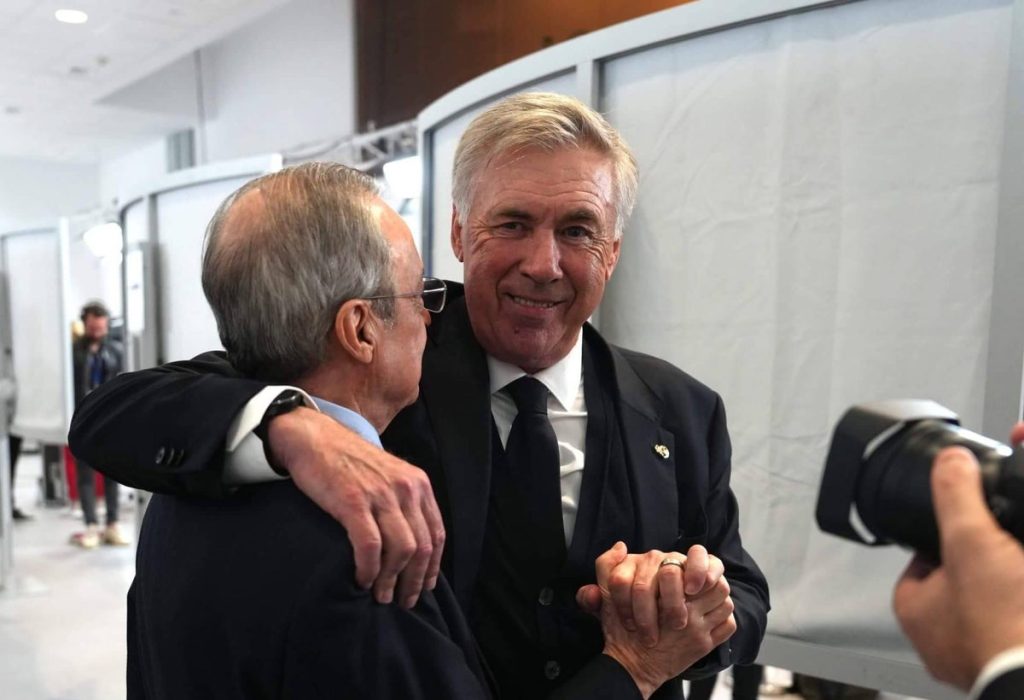Carlo Ancelotti, a seasoned manager with a wealth of experience dealing with powerful business figures, has reached the impressive milestone of coaching 300 games for Real Madrid. Despite experiencing rocky periods during his two stints as manager, Ancelotti has succeeded at the club by focusing on his primary role as coach and not trying to control factors outside his remit. He has also insisted on the importance of his support team being like a ‘family’ with his son Davide serving as his assistant coach.
In his book ‘Quiet Leadership: winning hearts, minds and matches’, Ancelotti opens up about managing under high-profile bosses such as Silvio Berlusconi, Roman Abramovich, and Nasser Al Khelaifi. He states that he learned to accept and adapt to their styles, even when it went against his own football philosophy or transfer preferences. At Chelsea, for example, he turned Abramovich’s interference into motivation for the team.
However, not all relationships were as successful. Ancelotti’s relationship with Florentino Perez at Madrid changed after publicly addressing agent-related issues and perceived improper training intensity. Despite these challenges, Ancelotti acknowledges his time at Madrid was lengthier than most managers and that leadership may involve compromise. In his second tenure at Madrid, Ancelotti adapted tactics to suit the existing squad, making the team more direct and intense, which proved successful.
That said, his leadership at Real Madrid has not been without difficulties. The Madrid hierarchy considered other coaches when Ancelotti’s contract neared expiry in 2025, amid him being courted to coach Brazil’s national team. The bargaining power Ancelotti held during this period was unusual for the club’s administration. However, following a 17-game unbeaten run, Madrid extended Ancelotti’s contract to 2026.
Ancelotti also experienced issues when trying to hire Stockport County coach Andy Mangan, who is close to his son Davide. These pressures were further intensified by criticisms over the team’s performance this season, particularly against Stuttgart in the Champions League. In response to the criticism, Ancelotti calmly acknowledged the need for improvement, while noting that Madrid fans prioritise winning over style of play.
To wrap up, Ancelotti has shown how to thrive as a coach in demanding environments through his calm demeanor, adaptability, and years of experience handling high-profile bosses. He has learned to not take judgement personally, instead focusing on performing his job to the best of his ability. In the challenging realm of football management, his approach is an example of mature, quiet leadership.


